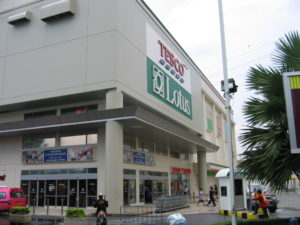 Tesco Lotus Deal Could Lead to Even More Market Concentration in Thailand
Tesco Lotus Deal Could Lead to Even More Market Concentration in Thailand
Thailand has long been known as a country with extreme levels of market and economic concentration.
That wealth inequality and consolidated market control looks likely to become even worse with the country’s impending Tesco Lotus merger.
Tesco, a major UK retailer, acquired Lotus supermarkets and convenience stores in 1998 from Thai conglomerate CP.
Tesco Lotus now has a huge share of the retail market in Thailand, with over 2,000 stores bringing in as much as $2.6 billion in sales per year.
Now CP is vying to buy back the Lotus brand they sold over two decades ago.
Two other bids for Tesco Lotus have also come from a duo of Thailand’s most powerful business conglomerates–Central Group, who own a retail empire of malls, restaurants, and department stores and TCC, who control the ThaiBev beer and spirits dynasty known for Chang beer.
The winning bid, which will likely fall in the ballpark of $10 billion and as one of Asia’s biggest mergers in 2020, will give one of Thailand’s wealthiest families an even greater foothold in the retail marketplace in a country where monopolies already pose a massive problem.
Opponents of Tesco Lotus being sold to one of the three bidders state that if a merger goes through wealth inequality will grow worse, prices will become higher, and market competition will once again be weakened.
Sakon Varanyuwatana, Thailand’s chief competition official, recently proclaimed that he will block any deal that violates anti-trust laws.
CP, Thailand’s top retailer, already owns the country’s 7-Eleven convenience stores and Siam Makro supermarket chain, while Central Group already owns Tesco Lotus’ most similar market competitor, Big C.
Read the full story here.

